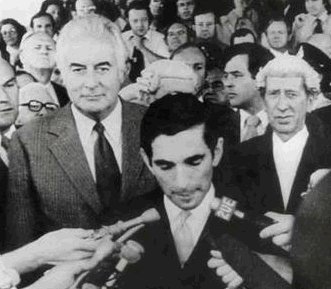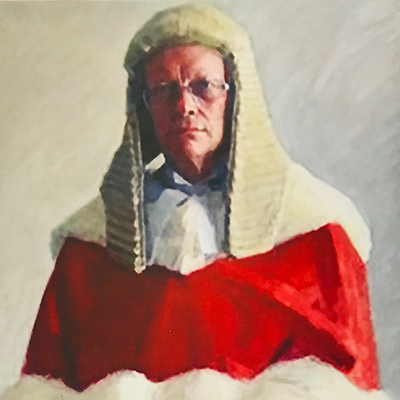After three decades, why are taxpayers still forced to underwrite something they clearly don’t want, a politicians’ republic? The reaction to any referendum should always be, as Alan Jones famously said in 1999, ‘If you don’t know, vote No.’
This push is not because of some noble belief in republicanism. Nor is it to avenge Sir John Kerr’s dismissal of Gough Whitlam. Whitlam was well aware of Sir John’s duty to use the reserve powers. He just didn’t think Kerr had the guts to act.

The real reason is the politicians want to be unaccountable. Not only do they want to get rid of the reserve powers, but they are whittling away the checks and balances that were considered normal, even in colonial days. This became clear during Covid-19 when politicians followed Beijing’s example and acted like petty dictators. Little wonder that in 2017 Paul Keating opined that Beijing had the ‘best government in the world in the last thirty years’.
Regulations shouldn’t be made on one politician’s whim, but in the executive council where the governor-general or governor must be satisfied that he or she has the power to do what the politicians advise and that any conditions have been fulfilled.
When a NSW minister closed down the construction industry at a cost of $1.4 billion, the chief health officer said she didn’t advise it. Any such regulation should go to the executive council with an explanatory memorandum setting out the reasons for all to see. It should be disallowable in either house of parliament.
At the height of the crisis created by politicians in response to Covid-19, 20 per cent of federal instruments, including the most important, were statutorily exempt from disallowance. Meanwhile, many parliaments were actually banned from sitting. That’s why, at its most recent national conference, Australians for Constitutional called for a restoration of these secretively removed checks and balances.
The chances for another referendum on a politicians’ republic succeeding are poor. Even in 1999, when pundits declared the Keating-Turnbull republic inevitable, ACM, on the smell of an oily rag, prevailed in all states and in 72 per cent of electorates. That’s more electorates than any Australian government has ever won in an election, even in a landslide.
Since then, interest in a politicians’ republic has collapsed, with polling revealing that this disinterest is led by the young. And to anyone who bothers to examine the question historically, as both John Howard and Tony Abbott have, Australia is already a republic ─ a crowned republic. The coup de grâce for the politicians’ republic is that once Australians say No, they always say No ─ even when the same issue has been put five times.
All this explains why, despite flaunting the constitutional aberration of appointing an assistant minister for ‘the’ republic, the Albanese government sheepishly concedes that this is a ‘second or third term issue’.
But Australians must never be complacent. This does not mean they should panic and waste money on premature advertising, luxury Sydney premises or expensive travel by those who have no experience in campaigning for a referendum.
The point is to be financially prudent, presenting our case clearly and above all consistently, not chopping and changing with the wind.
It also means being wary about the sharp practices some politicians will use.
Just as they plan to turn the ‘indigenous voice’ vote into a request for blank cheque, so they will try to sneak through a politicians’ republic by using a trick question and keeping voters in the dark.
The foundation for this was laid when the Rudd government reacted to republican frustration with the ACM-drafted No case which went to all electors.
Determined to weaken the impact of their opponents, the government legislated to ensure the yes/no booklet would no longer go, as it always had, to every voter. Instead, to ‘save costs’, this profligate government inserted what ACM called the ‘garbage tin’ amendment. As a result, only one yes/no booklet is sent to each residence, no matter how many voters live there, addressed, no doubt, ‘To the householder’. The result will be as intended; fewer voters will see the arguments. So, the referendum question will become even more important. The trick question will not describe the proposed politicians’ republic but instead ask something along these lines: ‘Are you in favour of Australia becoming a republic with an Australian as head of state?’
The intention is to imply that we do not already have an Australian as head of state. And there is good evidence from polling that adding those words increases the Yes vote by 8 per cent. That could be the difference between the Yes case losing at 45 per cent and winning at 53 per cent.
The argument that we do not have an Australian as head of state is a blatant lie and the politicians know it. Whenever they send the Governor-General on a state visit, they insist he or she is the Australian head of state.
In 1983, when the Indonesian government, provoked by a republican in our embassy, said he would not be so received, the Hawke government called off the visit. The Indonesian government subsequently apologised, and the visit went ahead the next year.
The reason why ACM, alone, has argued so consistently and powerfully that the Governor-General is head of state is not only because our task force of constitutional and international lawyers and experts in viceregal practice unanimously assert that this is so. Far more importantly, this rebuts the false and highly misleading claim that only through a politicians’ republic can we have an Australian a

s head of state.
That is why the head of ACM’s task force, Ken Handley recently wrote in a must-read piece in The Spectator that ‘The Governor-General is Australia’s head of state’. The article contains solid arguments supporting that conclusion, as well it might, given that he is a former judge of five appellate courts in different Commonwealth countries, a Queen’s Counsel, and a published legal expert. He is undoubtedly the most eminent authority in the land on this question.Got something to add? Join the discussion and comment below.
Y
